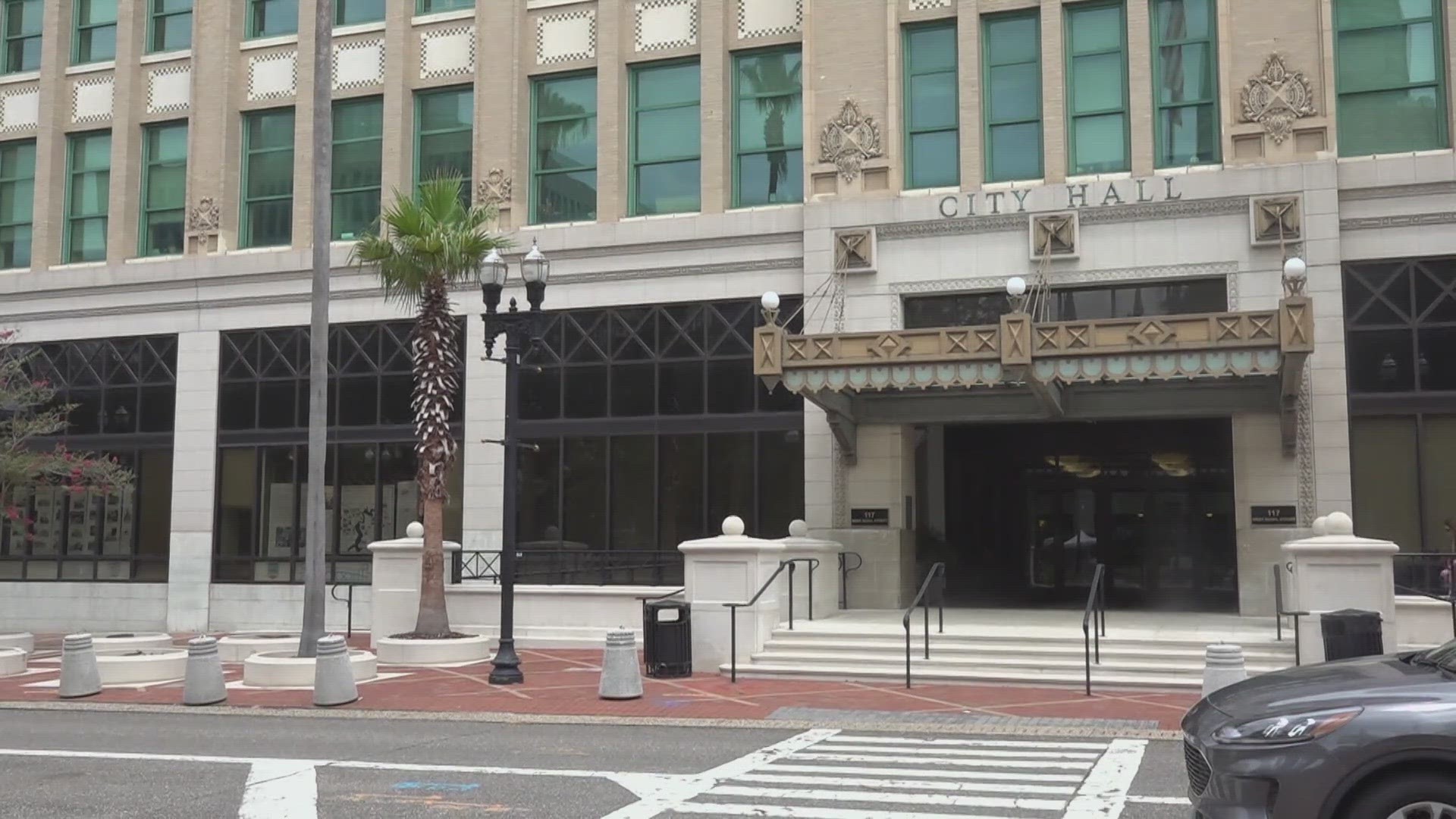JACKSONVILLE, Fla. — A city of Jacksonville bill establishing funding to help people who are homeless has been withdrawn.
A potential two percent tax on food, drinks and alcohol sold at hotels and motels and a 1 percent tax on food, drinks and alcohol sold at businesses that can sell alcohol, has been scrapped.
"To the average diner in Duval County, any price increase can drastically impact their decision to dine out or stay out," a person in opposition to the bill said at last week's city council meeting.
"This resolution gives the city the chance to unlock the opportunity to establish a permanent funding source for funding the homeless and survivors of domestic violence," a person for the bill said at the same meeting.
On Monday, the bill was withdrawn in a committee meeting before it could make it to Tallahassee to be passed by the state legislature.
“I’m not going to lie, to you this was the only dedicated funding source that exists in state law," Jacksonville city council member Jimmy Peluso said.
Peluso co-sponsored the resolution and said confusion over the bill's intent is why it never made it to the state level, where it would have ultimately been approved or denied.
“We need to be a little clearer on what this bill really was,” Peluso said.
Peluso’s fellow council member, Michael Boylan, who also supports homeless initiatives, agrees.
“[This resolution] is nothing more than giving us the opportunity to consider that as one of our many options to fund these programs," Boylan said.
A similar funding source is used in Miami-Dade County.
"They had a really good lobbying crew and people did fight it," Peluso said. "People were really upset about it but, now everyone recognizes the work the homeless trust does is incredible.
Now, city council members will have to look for a new way to find funding. Peluso mentioned looking at the city's general budget but, he isn't sure how viable an option that is.
Boylan offered another option.
"If developers are getting a certain amount of money to build in our communities as completion grants a percentage of that grant, [it] should be also provided to support the homeless in our communities," Boylan said.

